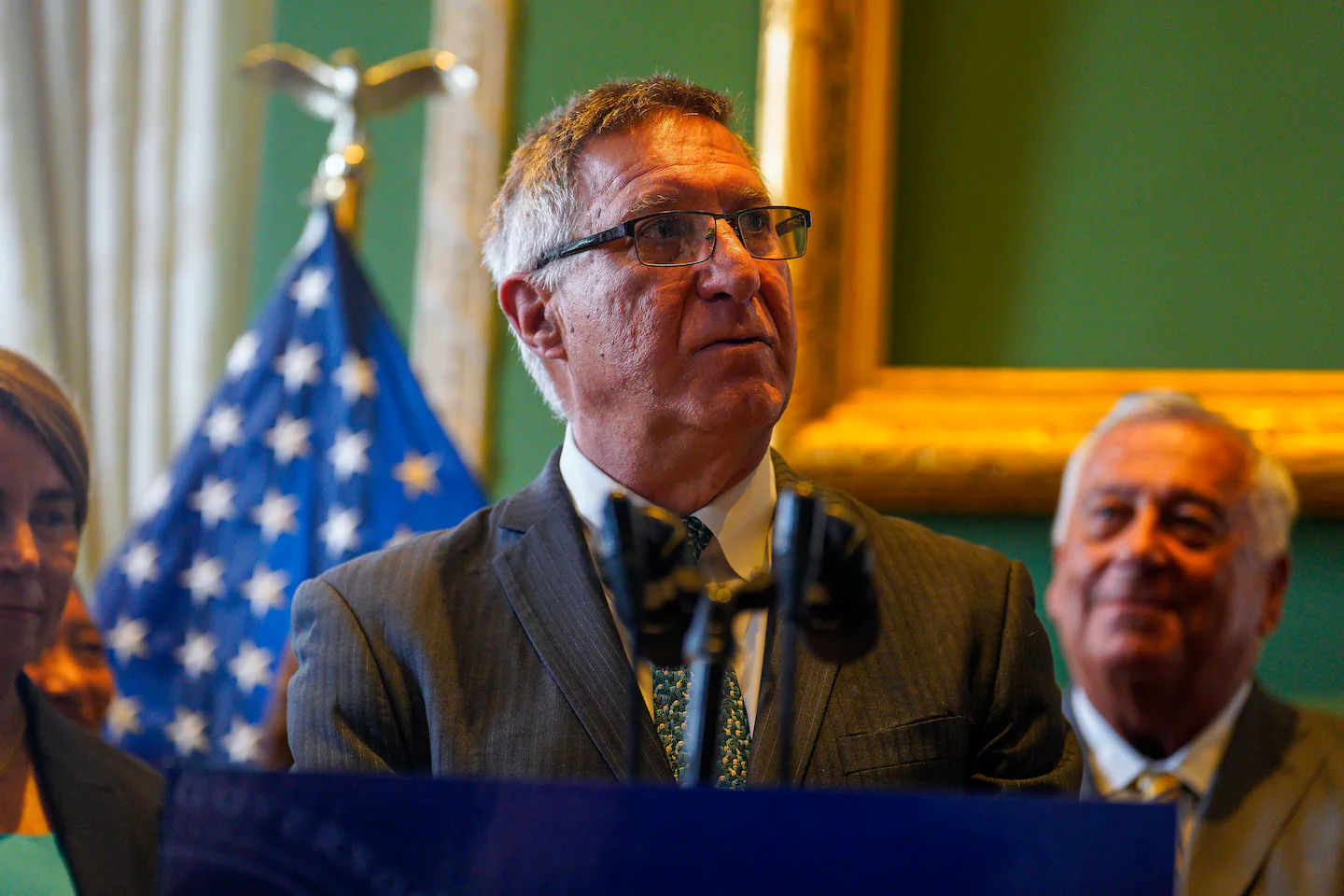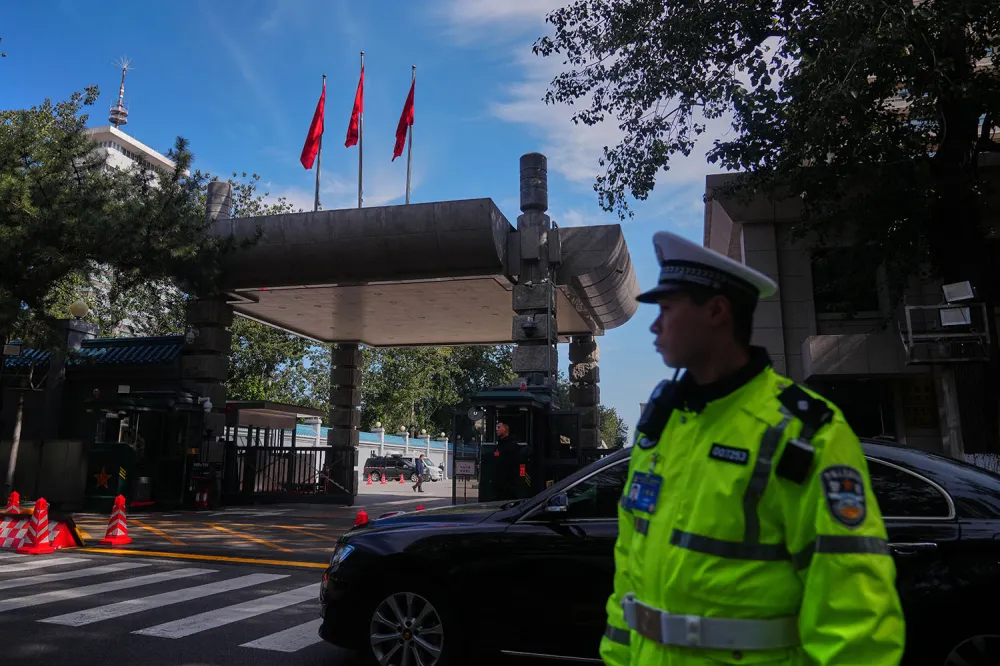Copyright The Boston Globe

“When we pass a budget and the governor signs it, it’s not a suggestion or a goal. It’s the law,” the Westport Democrat said. “And we’re expecting them to live within the law.” The state’s 14 sheriffs have weathered mounting scrutiny in recent months, over their spending and after several faced either civil or criminal allegations in unrelated incidents. The Senate’s plan to create an oversight panel would go further than how the Massachusetts House proposed addressing the sheriffs’ spending. That chamber last week passed a bill that would hold back more than $100 million in requested supplemental money for county sheriffs’ offices. The House bill would also task the state inspector general with investigating the sheriffs’ spending and issuing a report by February. The Senate included similar language, though its version would give Inspector General Jeffrey Shapiro’s office until the end of June — effectively the end of the current fiscal year — to report back, including on any spending on “activities not specifically required by statute, case law or court order.” Governor Maura Healey filed a spending bill that, in part, was designed to cover excess spending by the 14 county sheriff’s departments beyond the $737 million they received in the state budget last year. Healey initially proposed giving sheriffs an additional $162 million; her budget office has since said the sheriffs’ deficits now total roughly $121.5 million. The Sheriffs’ accounts are one of only few in state government that can spend into deficit, along with the state’s Medicaid program, known as MassHealth, and budgets designed to cover snow and ice removal. But while its common practice on Beacon Hill to cover the sheriffs deficits, the sheer amount this year caught legislative budget writers off guard. Rodrigues said the request marks an “unsustainable” jump from the $46 million the Legislature provided sheriffs last year to cover their deficits. “Our strategy is to stabilize, investigate, and control the spending,” he said. He likened the creation of a so-called “sheriff fiscal oversight council” to one lawmakers created in 2015 to provide more oversight of the MBTA. A sheriff’s office, however, is not as quasi-public agency but a different political animal altogether in Massachusetts: All 14 departments operate as independent state agencies, whose leaders are elected every six years by voters to operate the jails and houses of correction in their counties while also helping enforce evictions, serve summons, and handle other civil process duties. The bill would allow the state panel, led by the governor’s public safety secretary and budget chief, to set “financial management metrics” for each sheriff’s office. Should they not meet them, the council could then appoint a receiver to “take operational and managerial control” of the sheriff’s office in question. “That would be the last resort,” Rodrigues said. Sheriffs have said that the excess costs were driven in part by salary increases, and covering the state’s so-called no-cost calls program — costs, they’ve argued, should not be a surprise, given lawmakers in some cases did not budget enough up front. Both the House and Senate had asked the sheriffs for a more detailed breakdown in recent weeks, and an official under Bristol County Sheriff Paul Heroux told state Senator Kelly Dooner, a Taunton Republican, in an email shared with the Globe that the information it provided “clearly illustrates the longstanding underfunding that has affected our operations.” Legislative leaders have not been convinced. House Speaker Ron Mariano told reporters last week that given the increases, “wouldn’t you question what’s going on?” “We’re concerned,” the Quincy Democrat said. “Where is this going to end?” The Massachusetts Sheriffs’ Association said in a statement last week that sheriffs “respect the Legislature’s responsibility” and welcome any review that “strengthens public confidence.” The sheriffs’ spending is not the only thing to draw attention of late. Since last fall, sheriffs in Norfolk, Hampden, and Suffolk counties have been accused of misusing campaign funds, drunken driving, and extorting a cannabis company, respectively. Steve Tompkins, Suffolk County’s sheriff and a Democrat in his second full term, pleaded not guilty to the federal extortion charges and sought to have them dismissed. He agreed in August to “step away” from his post amid his federal criminal case. Patrick McDermott, Norfolk County’s sheriff, earlier this month stepped down as head of a state-funded sheriffs’ association, saying he wanted to “focus my full attention” on his office. The move came weeks after he agreed to pay $36,300 under a deal with state campaign finance regulators, who said he unlawfully used campaign money to further his business interests. The Globe also reported that McDermott tapped his taxpayer-funded office for thousands of dollars in online tutorials, including on how to grow a business, launch a podcast, and craft his own digital courses. He has not created a course or podcast within his office, but months after charging the courses to an office procurement card, he began advertising an outside venture promising a “game-changing membership” that — for a $670 annual fee — offered advice to subscribers to help them take their “real estate business to the next level.”



